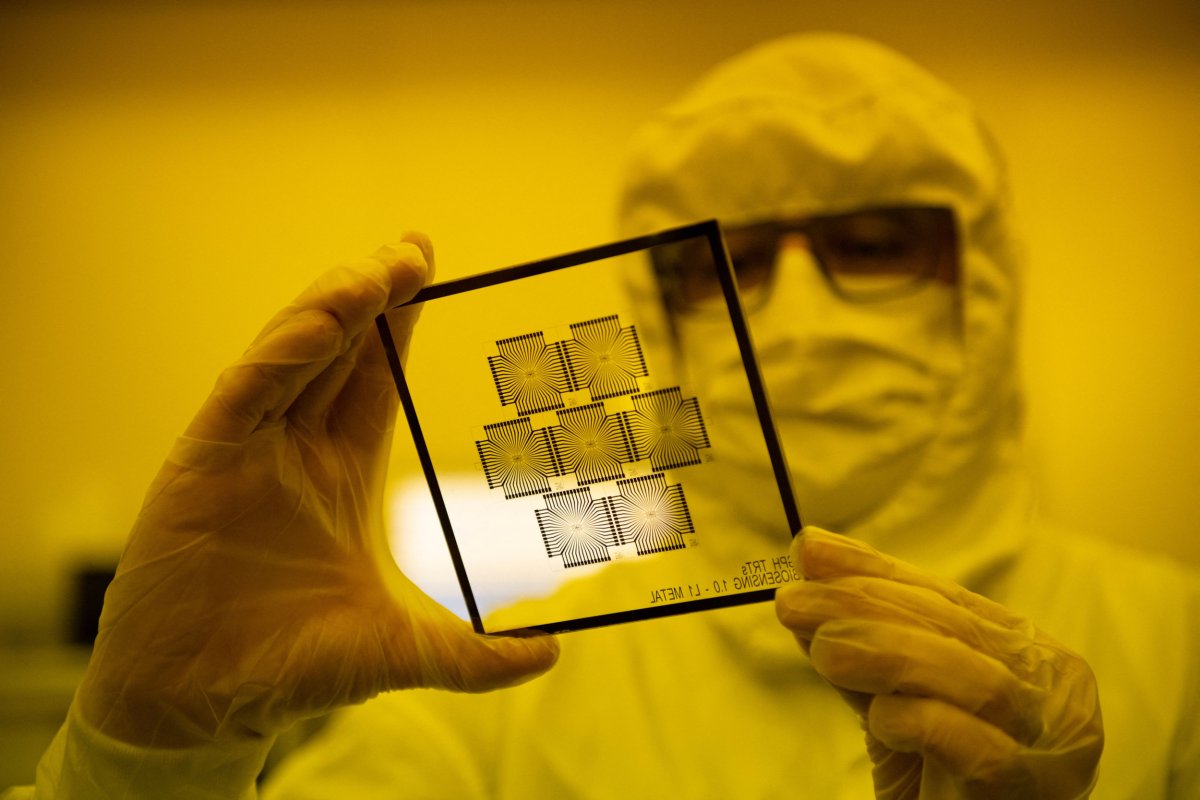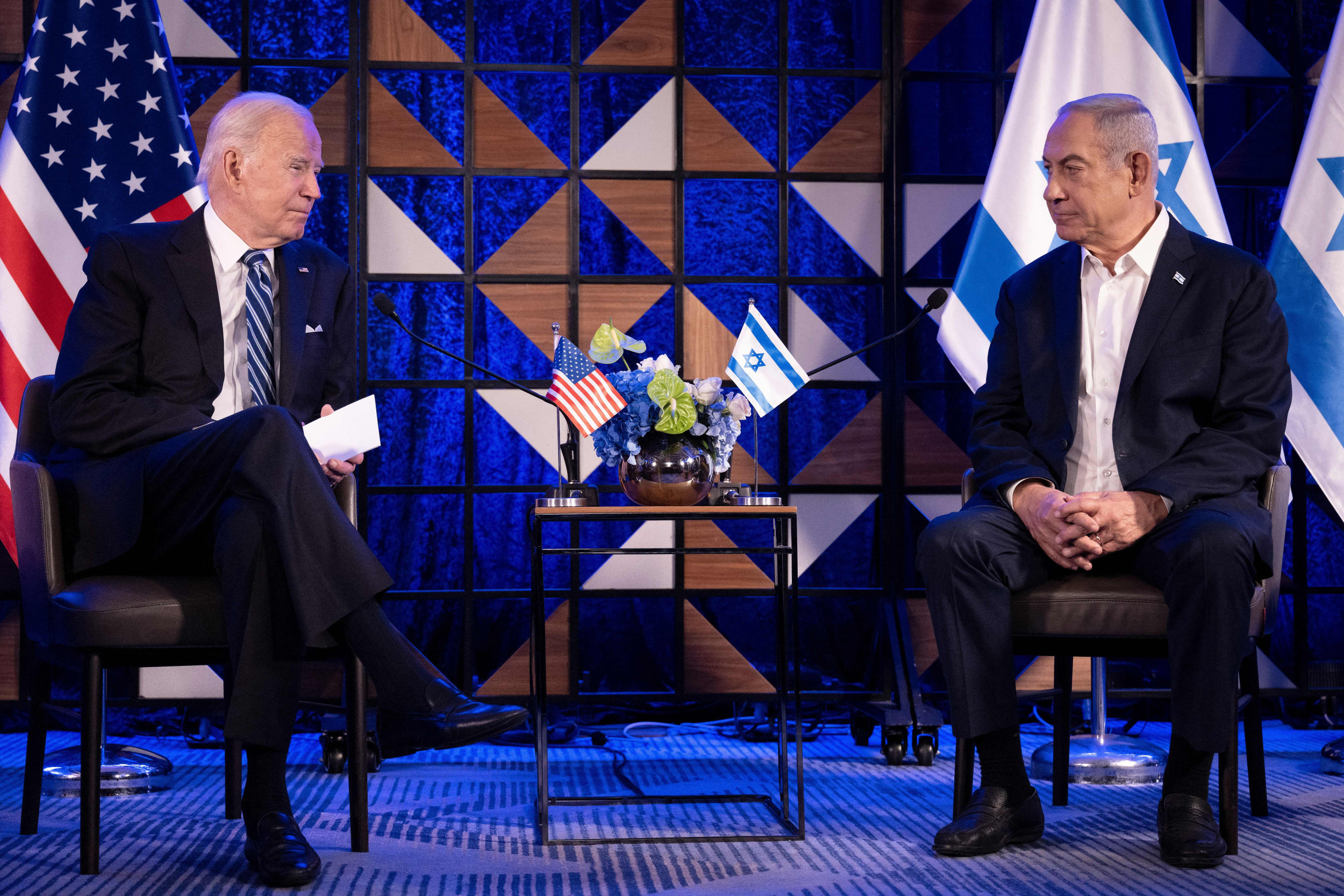The White House has pressured semiconductor equipment manufacturer ASML to cancel planned shipments of certain proprietary machines to China, according to Bloomberg.
The Dutch company's decision comes just weeks before a ban on high-tech machinery exports comes into effect at the end of January, and after the Netherlands revoked an export license for some of its hardware.
President Joe Biden's administration has doubled down on its predecessor's efforts to curb China's advances in emerging technologies like artificial intelligence and supercomputing, which the United States and its allies view as a national security threat in Beijing's hands.
China, meanwhile, has threatened to restrict U.S. access to rare earth elements and other critical minerals needed to manufacture the technologies of the future in tit-for-tat policies that have typified the ongoing tech war.
"China opposes the U.S.'s overstretching the national security concept and using all sorts of pretexts to coerce other countries into joining its technological blockade against China," Chinese Foreign Ministry spokesperson Wang Wenbin said on Tuesday at a regular press conference in Beijing.
Pointing to the globally integrated nature of the chipmaking industry, Wang took aim at what he said was Washington's "hegemonic and bullying practices that violate international trade rules" and compromise the industry.
Wang, who warned the move would backfire, called on the Netherlands to "respect the spirit of contract" and take steps to look after both countries' interests as well as industrial and supply chain stability.
Beijing last year pressed Dutch Prime Minister Mark Rutte to overlook national security concerns and grant it more access to advanced chipmaking equipment.
Chinese customs data from November showed China's semiconductors companies had imported the hardware in large quantities, suggesting they were stockpiling ahead of anticipated restrictions.

ASML is currently the only company in the world manufacturing extreme ultraviolet (EUV) lithography machines, which use lasers of various wavelengths to "print" patterns of circuits onto thin wafers made from silicon or germanium.
These microchips are increasingly essential for a wide variety of modern technologies, from smartphones and electric cars to fighter jets and guided missiles. The industry has nicknamed them "the oil of the 21st century."
Reached by phone, an ASML spokesperson referred Newsweek to a press release published Monday in which the company said it had "obtained further clarification of the scope and impact of the U.S. export control regulations."
The most recent of these rules, issued on October 17, restricted "certain mid critical [deep ultraviolet (DUV)] immersion lithography systems for a limited number of advanced production facilities," the statement said.
Unlike EUV lithography, which emit light with a maximum wavelength of 13.5 nanometers to produce more advanced semiconductors, DUV wavelengths typically measure between 248 and 193 nanometers and are used in older chip processes.
ASML said it did not anticipate its bottom line for 2023 to be significantly affected by the updated export controls or the Dutch government's recent partial revocation of its license to ship two types of DUV lithography machines—the NXT:2050i and NXT:2100i.
Last summer, Chinese telecommunications giant Huawei surprised industry experts when it announced its latest smartphone model, the Mate 60, was powered by an advanced and domestically produced 7 nanometer processor.
The apparent technological leap, achieved despite stringent U.S. export controls on both Huawei and Chinese chipmaker SMIC, raised questions about how effective those curbs actually were.
However, others with knowledge of the industry, including U.S. Commerce Secretary Gina Raimondo, cast doubt on whether China could produce the processor at scale—a requirement of commercial success.
Uncommon Knowledge
Newsweek is committed to challenging conventional wisdom and finding connections in the search for common ground.
Newsweek is committed to challenging conventional wisdom and finding connections in the search for common ground.
About the writer
Micah McCartney is a reporter for Newsweek based in Taipei, Taiwan. He covers U.S.-China relations, East Asian and Southeast Asian ... Read more
To read how Newsweek uses AI as a newsroom tool, Click here.






